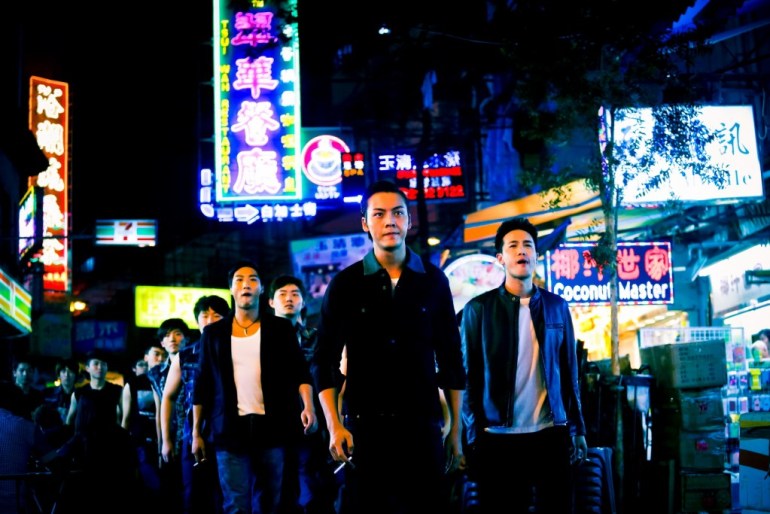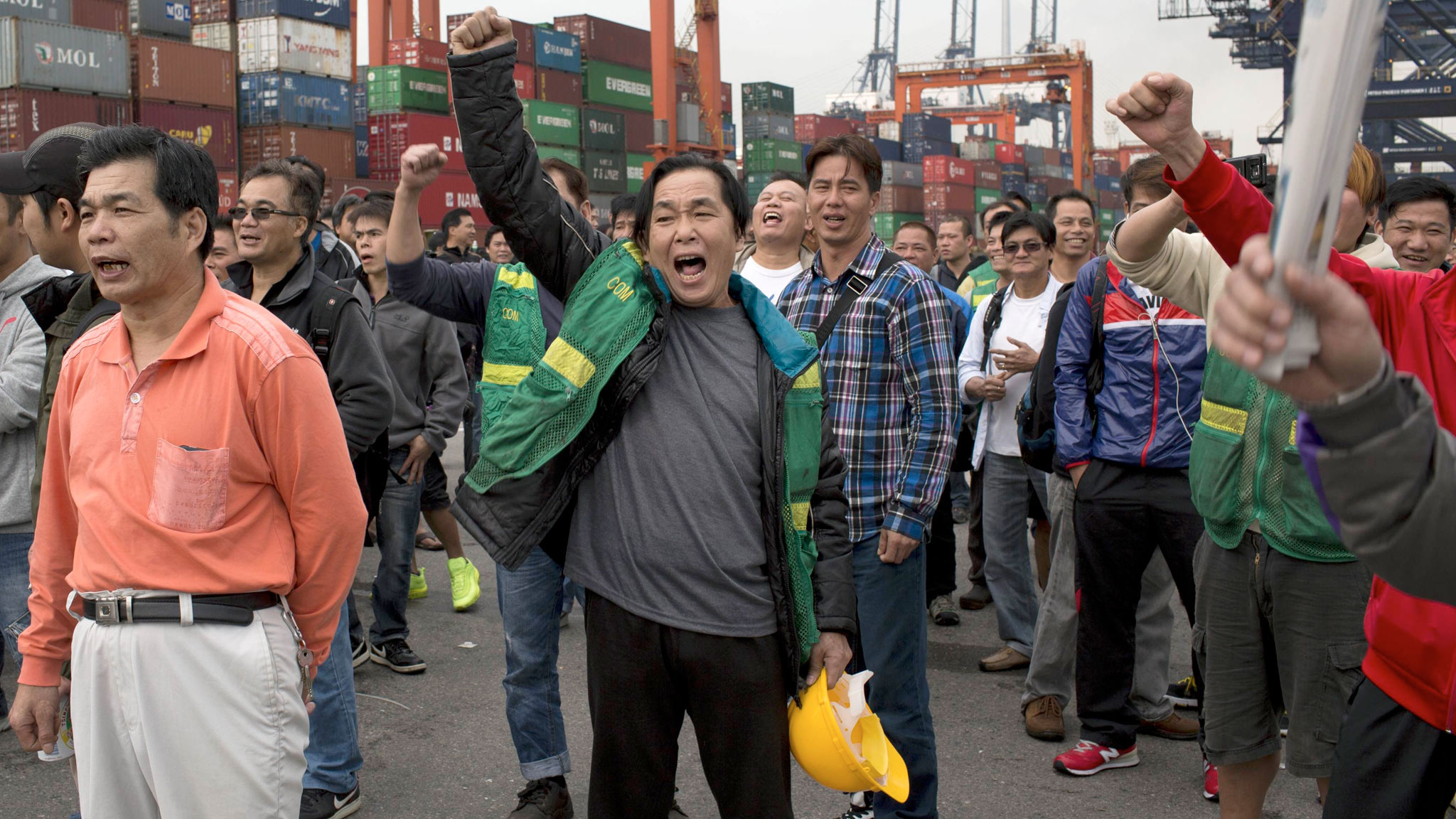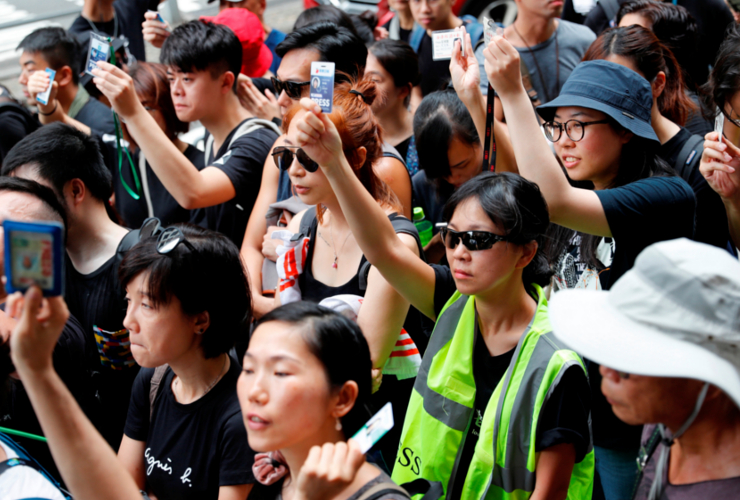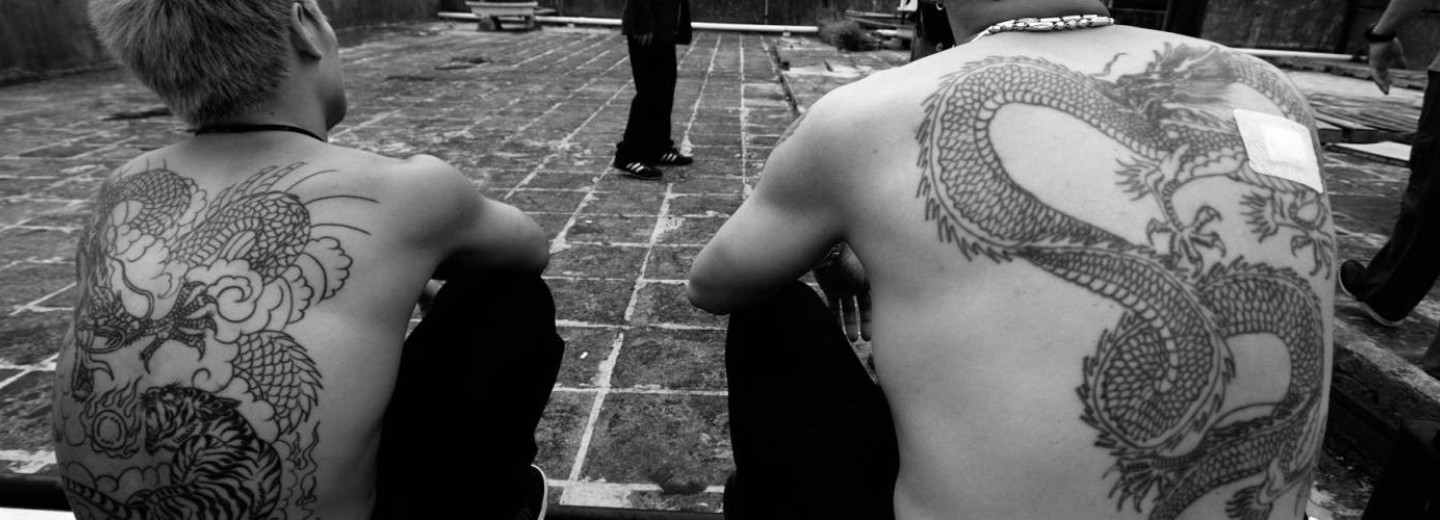China news 14th June 2021
We have three stories this week, two about Hong Kong and one about the status of labour unions in China. First is a history lesson about the notorious Hong Kong Triads.
The first story
In August 1949, Guangdong was liberated by the Communists, and the Kuomintang spy agency, which had been entrenched at No.14 Baohua Road, began to retreat to Hong Kong. This spy agency is the “14th” that was once frightening.
Although the strength of the 14th who fled to Hong Kong is not as good as before, they were not reconciled to failure. To realize their ambitions to counterattack the mainland, they changed the former spy agency “14” into a Triad organization – “14K”. It was from this time that the activities of Hong Kong gangs began.
Although 14K first arrived in Hong Kong to counterattack the mainland, they had to gain a foothold in Hong Kong first, so they wanted to win over the radical leftist forces in Hong Kong. The so-called leftists were a group of people with Communist Party ideals. They wanted to build up labour rights. These people were generally young and very motivated, and relatively aggressive. If they can get help, then they will be successful in Hong Kong.
However, what 14K did not expect was that the leftists were concerned about the rights and interests of local workers at the bottom of Hong Kong. They did not care about outsiders, not to mention that 14K had bad intentions. So not only did the leftists not want to cooperate with them, but they also wanted to drive them out of Hong Kong. There was a big fight in early 1950.
In fact, it was not only organizations like 14K who fled to Hong Kong, but also many Kuomintang soldiers and many refugees. After seeing 14K being attacked by the Hong Kong left, they also began to worry about their fate. So, they united and fought against the leftists in Hong Kong. 14K also took this opportunity to publicly declare allegiance to the Kuomintang. Under this call, 14K grew rapidly.
Seeing that 14K was getting stronger and stronger, this not only affected the plans of the leftist revolution, but also made Wo Shing Wo, the largest local gang, feel threatened.
Suddenly with 14K, Wo Shing Wo, the Hong Kong Leftists, the Hong Kong government, various parties, and many refugees gathered in Hong Kong, the originally peaceful Hong Kong suddenly became messy. While they were fighting, another big gang was quietly emerging. This gang was the new Sun Yee On who joined 14K and Wo Shing Wo as the three major gangs in Hong Kong for the future.
After that, the three major gangs fought with each other for decades, making 14K gradually forget its mission in the fight. During the struggle, the gangs continued to expand their strength. Eventually the total number of Hong Kong gang members exceeded one million. To feed so many mouths, these gangs were criminal, and gave severe tests to Hong Kong’s public security and the lives of the people.

However, after Hong Kong returned to the embrace of the motherland in 1997, the overbearing Hong Kong gangs gradually disappeared. So, some people will ask, where have the Hong Kong gangs with a total of nearly one million gone? They can’t just disappear into thin air.
After the return of Hong Kong, these people actively responded to the call for transformation. For example, Chen Huimin, the 14K leader with hundreds of thousands of followers, took the lead in transforming the film and television industry.
Not all gang members wanted to transform. They had fought and killed for a lifetime, and suddenly had to run legitimate businesses. They did not want to do it. So, these people moved to North America and other places to continue their activities.
Why were the gangs in Hong Kong were so rampant before 1997?
In fact, gangs were an inevitable product of Hong Kong’s development. Even though the British had repeatedly cracked down on the crimes at the time, they were still powerless. The reason was that Hong Kong is an important port in China and an important financial settlement centre. In addition, Hong Kong as a British colony in the Far East, had to manage Hong Kong much more loosely. This was also an important reason for the breeding of gangs.
Although Hong Kong’s unique gang culture was hateful, it gave inexhaustible plots to Hong Kong film and television. As a special cultural symbol, Hong Kong gang movies have influenced generations of people. So now when I look back at this matter, I will find that the right and wrong of the past have gone away with time. We must live in the moment.
Source: history.ifeng.com.
The second story
Labour unions in China have a confusing task – to represent the workers and to uphold the Chinese Communist Party. This much abbreviated article reflects some of that confusion but encourages Hong Kong workers to unite to gain more power.
Since the reform and opening up, China has had no shortage of angry workers. According to statistics, 1,171 demonstrations and strikes occurred across China from June 2011 to December 2013. The strike wave in Dalian Development Zone in July 2010 even affected 73 companies. A total of 70,000 employees asked for a salary increase.

Labour disputes also occurred in 2012. There were as many as 1.33 million cases, of which more than one-third failed to be resolved. China had passed a series of labour laws (such as the 1995 Labour Law and the 2008 Labour Contract Law) to protect the economic rights of workers. The model has been further refined to “protect rights in accordance with the law” rather than organized actions. In short, the CCP suppresses collective rights on the one hand, and promotes individual rights on the other and eliminates potential class struggles.
Since Xi Jinping came to power, the labour movement has been strictly guarded. Wildcat strikes, once a trend, have dwindled. No matter how bleak the outlook is and how unfavourable the conditions are, collective power remains the strongest weapon of the masses. In the 1970s, the Korean labour movement united students, media, and religions, and strengthened the momentum of the democratic movement in the future. The Polish Solidarity trade union gathered thousands of people, and it took many years of struggle to achieve success. No matter how strict the national security law is, Hong Kong has not been fully subdued. Although the protesting trade unions started late and setbacks, it is still worth trying to develop grassroots organizations to connect multiple forces and rebuild civil society from the bottom up while there is room for activity.
Source: beta.thestandnews.com.
The third story
The reporter in this article considers that Hong Kong is a good platform for China to engage in better external propaganda. Whether Hong Kong’s press freedom will be tightened is an important consideration.
This reporter attended two events last month.
The first event was a private dinner for media colleagues. There was a Hong Kong reporter from a major Western newspaper. He looked very young, but he was about 30 years old. European and American media organizations have always liked to use older people to be stationed abroad. Reporters are different.

In recent years, China has been at odds with European and American countries, and some Chinese reporters of one western newspaper were forced to leave mainland China. This new reporter to be stationed in Hong Kong first was waiting for the opportunity to go to mainland China for interviews in the future. This makes Hong Kong once again play the role of intermediary.
The second event was in late May. A representative of a public relations company invited me to have afternoon tea. One of the company’s jobs is to follow the trends in Hong Kong and foreign media in Hong Kong, to regularly update the information of media organizations and inform corporate customers.
During the conversation, this public relations friend shared some observations about foreign media in Hong Kong. She said that the epidemic and economic factors have had a great impact on foreign media in the past year. Some media organizations have reduced Hong Kong manpower due to cost considerations.
When issues such as Hong Kong and Xinjiang were plagued by international public opinion, the General Secretary of the CPC, Xi Jinping, instructed the media to build a “credible, lovable, and respectable” China image. “Wolf war” propaganda promoted by the authorities in recent years may be fine-tuned in the short term.
For a long time, the outside world only thought that Hong Kong played the role of transit station for trade with China, but they did not realize that Hong Kong could also play the role of international public opinion in spreading the voice of China.
As we all know, Hong Kong has been a media information centre in Asia for many years because of its highly developed communication and press freedom. All major international news agencies, newspapers and magazines, radio and television broadcasters have established their Asia-Pacific regional headquarters or offices in Hong Kong, and many regional publications are also printed and distributed in Hong Kong.
According to the Hong Kong Government Information Services Department, there are about 100 overseas media organizations that have Hong Kong stations. In addition to CNN, Reuters, BBC, Associated Press, AFP, Bloomberg, and other well-known Western media. Many Japanese, Korean, and European media and National and international financial and entertainment media have also opened branches in Hong Kong.
As China is at the centre of the world stage as never before, international attention to China is also increasing. For Beijing, the abundant resources in Hong Kong can help tell the world about China. Normally, if foreign media want to report on Chinese news, they often choose to be stationed in Beijing. However, the reporting environment for foreign media in mainland China is deteriorating, and many foreign media in China have begun to withdraw or relocate to other cities.
In contrast, Hong Kong has convenient and fast transportation and has gathered many foreign journalists and foreign experts on “China Communication”. Beijing can arrange more related activities and press conferences in Hong Kong to help the Chinese government or enterprises improve their external image with the help of Hong Kong, a centralized place where global information meets.
By the same token, Hong Kong is also a good platform for China to improve it foreign image. China’s external media departments can use the concept of “offshore” and Hong Kong’s open reporting environment and convenient platform to hold large-scale international events and press conferences to publicize the Chinese concept. Of course, whether Hong Kong’s press freedom will be tightened is a very important prerequisite.
Source: zaobao.com.sg.
Worked on the article:

Wanlikhang





